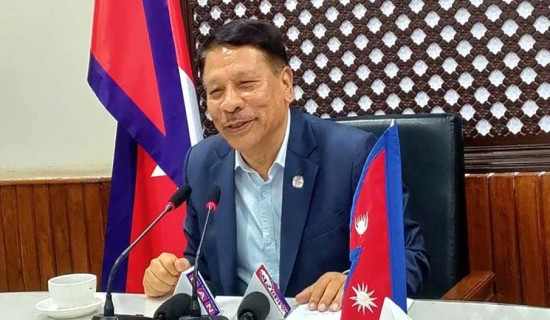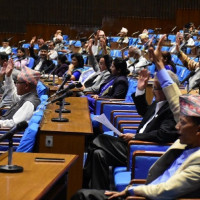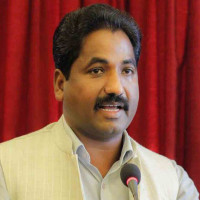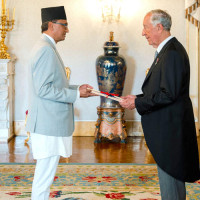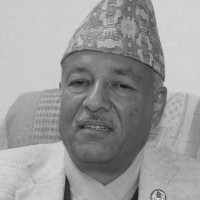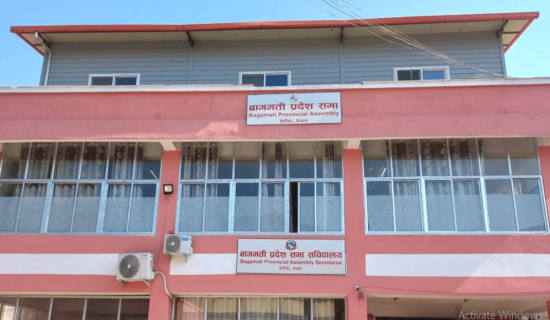- Wednesday, 2 April 2025
Marcos Eyes ‘Rehabilitation’
A number of recent events have created clouds of political uncertainty over the Philippines, especially after the Southeast Asian archipelago’s immediate past President, Rodrigo Duterte, was arrested and handed over to the Hague-headquartered International Criminal Court. Duterte faces charges of “crimes against humanity” committed during his six-year presidency from 2016 to 2022. Duterte’s initial reaction was, “There’s nothing I can do about it. If I’m arrested, if I’m jailed, so be it.” Government records maintain that more than 7,000 people were killed in anti-drug operations over six years. But, human rights advocates put the figure at more than 30,000. China described the Duterte arrest as a “political hit job".
Matters were aggravated by a recent case involving Duterte’s daughter and Vice President Sara’s impeachment after 240 of 316 members of the House of Representatives supported the charges of fund misuse, accumulation of wealth without known sources, and alleged conspiracy to kill opponents. Concerns are raised over the intensification of the political weaponisation of legal processes. Fears have grown that the use of state machinery for partisan interests could breed grave distrust and result in terrifying consequences.
In the 2022 elections, Bongbong Marcos Jr and Sara, with the full support of her father, the outgoing president, ran together with an understanding that, if Marcos Jr won, he would endorse the deputy to succeed him to the highest office. That road map seems to have been cast aside over time. Although Marcos Jr denies he has anything to do with the impeachment move, the father-and-daughter Duterte team is not convinced.
Crucial polls
The next stage of the impeachment procedure requires two-thirds of the 24-member senate to find her guilty as charged, with half of the seats to be filled by the May 12 elections. Two months later, the Senate will decide on Duterte’s fate. Opinion polls indicate a tight race against the background of the impending voting on the vice president. If Sara is voted guilty, Marcos Jr might have his personal choice to fill the vacant post and consolidate not only his position but also reassure Washington of continued tough policy against its communist China on the South China Sea claims.
China claims 90 per cent of the South China Sea as its sovereign territory, notwithstanding claims by five Southeast Asian states and Taiwan. Rich in oil and gas, the disputed territory accounts for about $3 trillion in annual trade passing through. The nominee for vice president will need to be reconfirmed by parliament, which should be smooth sailing for the chief executive, one of whose single-most important priorities is to strengthen close ties with the US-led West for the rehabilitation of his family’s “democratic credentials”.
Sara’s impeachment has added fire to the feud between the Duterte and Marcos families, further polarising the country’s political landscape. Duterte’s soft line towards Beijing is a sharp departure from his predecessors’ stand. Duterte’s policy was to engage Beijing in quiet diplomacy so that adjustment and accommodation could lead to a mutually acceptable agreement. The tough approach by Marcos should please the West, which has already drawn support from some major Western powers, as well as India and Japan. However, the policy could be a risk-ridden road map. The Marcoses are keen on refurbishing their image on an enduring scale. After all, their patriarch Ferdinand Marcos and the family left the archipelago in disgrace in February 1986 to live in exile in Hawaii.
Their flagrant misuse of power and accumulation of ill-gotten wealth were constantly reported in the press within and outside the Philippines. That background could trigger a backlash as a fallout of the Marcos-Duterte confrontation. President Joseph Estrada (1998-2001) and his deputy, Gloria Macapagal Arroyo, who succeeded him to complete the rest of the term in office and went on to win a fresh term, were locked in big controversies with their rivals. An iconic movie star, Estrada won the presidency in defiance of the wishes of Corazon Aquino, the first president under the 1987 Constitution.
As vice president, Macapagal distanced herself from the cine-actor turned politician who was embroiled in controversies that eventually undid his presidency. Although she won a fresh term, Macapagal soon got bogged down in litigations over alleged misconduct in the high office. Estrada loyalists sided with her opponents. In a bid for regaining his family’s democratic “rehabilitation”, Marcos Jr could face belligerence from the influential Duterte family that still has millions of admirers. The US, however, seems to be keen to boost its rapport with Marcos Jr, given that he takes a tough stance on the South China Sea issues against China’s claims.
Image refurbishing
In February 1986, the US arranged for the ousted President Ferdinand Marcos and his family members to live in exile in the Hawaii state of the US. Washington considered Marcos and his wife Imelda to be its die-hard US supporters, hence the negotiated settlement with the Aquino government in Manila. The Marcos family was widely reported in the US and other mainstream international news media to have stashed away billions of dollars in cash and gold in foreign banks, acquired through bribery on a staggering scale during the two decades of the senior Marcos in power.
Aquino, who led the 1985-86 People Power movement that ended the Marcos rule, became the first elected president under a new constitution formulated in 1987, which allows only a single six-year term, got embroiled in a major controversy over her move to seek a second term. Public protests prevented her from amending the constitution to allow a president an extension in office. She then endorsed her Vice President Gen. Fidel Ramos to succeed her. The former army general, too, wanted a second term in office, only to be criticised by Aquino herself and many others.
Following a huge public outcry, Ramos, who had ditched Marcos Sr to join the People Power Revolution in its last stage, abandoned his wish for a second term. Marcos Sr died in exile in 1989, and his widow and children returned to the Philippines two years later with the help of the US government to join mainstream politics. Now, Marcos Jr will have to play his cards cautiously. Antagonising the Duterte family risks serious consequences in the long run for the president in a country where every president is engaged in controversies.
(Professor Kharel specialises in political communication.)



